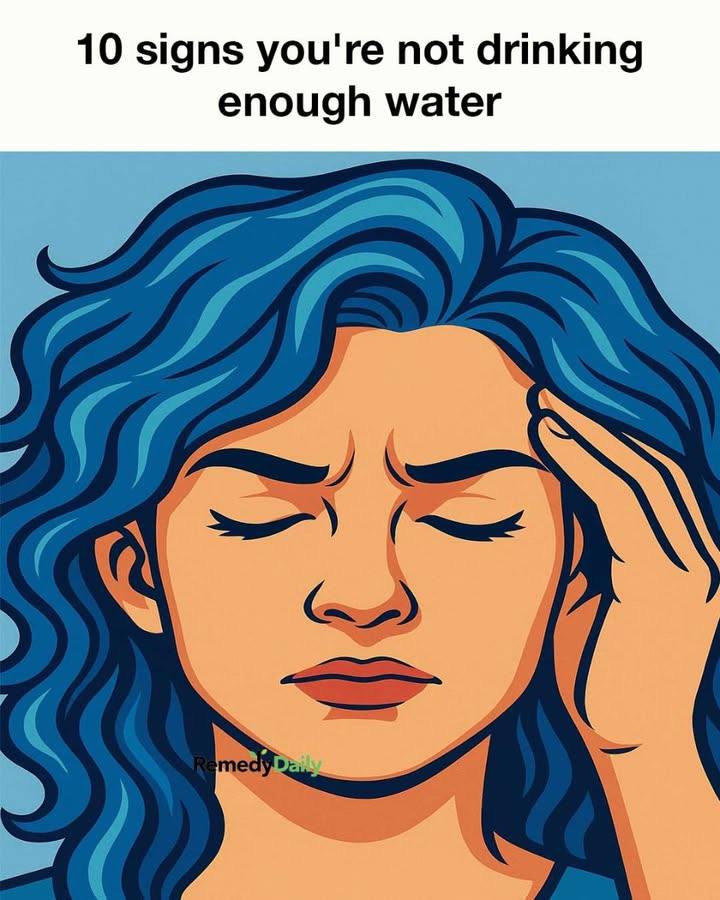Feeling constantly tired or lethargic can be a sign of dehydration. Water is essential for the body’s energy production processes, and a lack of it can lead to decreased blood volume. This makes the heart work harder to pump oxygen and nutrients to cells, resulting in fatigue.
To alleviate fatigue, ensure you’re drinking enough water throughout the day. Incorporating water-rich foods, such as fruits and vegetables, can also help boost hydration levels and energy.
4. Frequent Headaches and Migraines
Dehydration is a common trigger for headaches and migraines. When the body is dehydrated, it can cause the brain to temporarily shrink from fluid loss, leading to pain and discomfort. Studies have shown that increasing water intake can help reduce the frequency and intensity of headaches.
If you experience frequent headaches, try drinking a glass of water and see if it helps alleviate the symptoms. Keeping a water bottle with you throughout the day can serve as a reminder to stay hydrated and potentially prevent headaches.
5. Dark Yellow Urine: A Warning Sign
The color of your urine is a clear indicator of your hydration status. Ideally, urine should be light yellow or straw-colored. Dark yellow urine is a sign that your body is conserving water due to insufficient intake. This can also indicate that your kidneys are working harder to concentrate urine.
To ensure proper hydration, aim to drink enough water so that your urine remains a light yellow color. This is a simple yet effective way to monitor your hydration levels and adjust your water intake accordingly.
6. Feeling Dizzy or Lightheaded
Dizziness or lightheadedness can occur when the body is dehydrated, as it affects blood pressure and circulation. When you don’t drink enough water, blood volume decreases, leading to lower blood pressure and reduced blood flow to the brain.
If you experience dizziness, especially when standing up quickly, it could be a sign that you need to drink more water. Staying hydrated helps maintain stable blood pressure and prevents these uncomfortable symptoms.
7. Experiencing Muscle Cramps
Muscle cramps are often associated with dehydration, particularly during exercise or hot weather. Water is essential for muscle function, and a lack of it can lead to an imbalance of electrolytes, such as sodium and potassium, which are crucial for muscle contractions.
To prevent muscle cramps, ensure you’re drinking enough water before, during, and after physical activity. Consuming electrolyte-rich beverages can also help maintain the balance needed for proper muscle function.
8. Bad Breath and Dry Mouth
Dehydration can lead to a decrease in saliva production, resulting in dry mouth and bad breath. Saliva has antibacterial properties that help keep the mouth clean, and without enough of it, bacteria can thrive, causing unpleasant odors.
To combat dry mouth and bad breath, increase your water intake and consider using sugar-free gum or lozenges to stimulate saliva production. Staying hydrated is key to maintaining oral health and fresh breath.
9. Sudden Food Cravings, Especially for Sweets
CONTINUE READING ON THE NEXT PAGE 🥰💕

